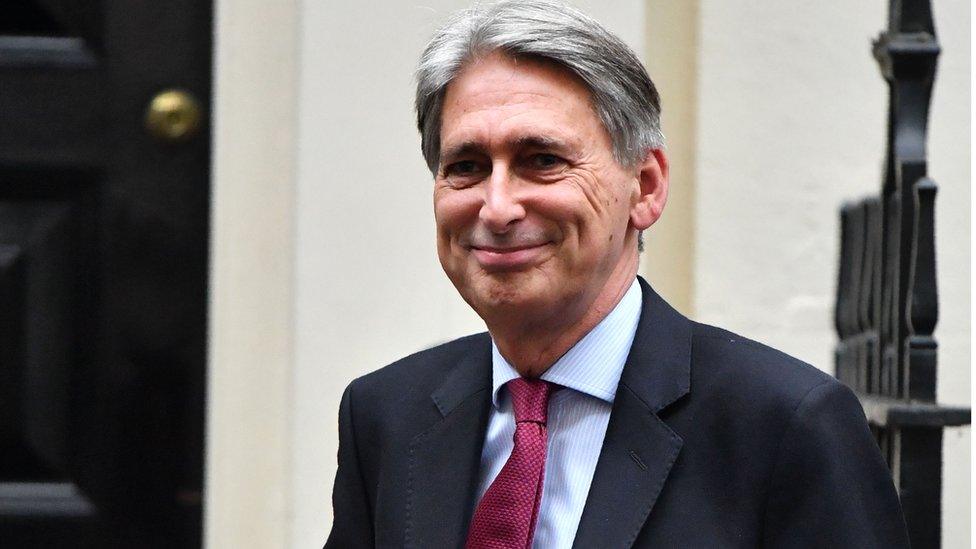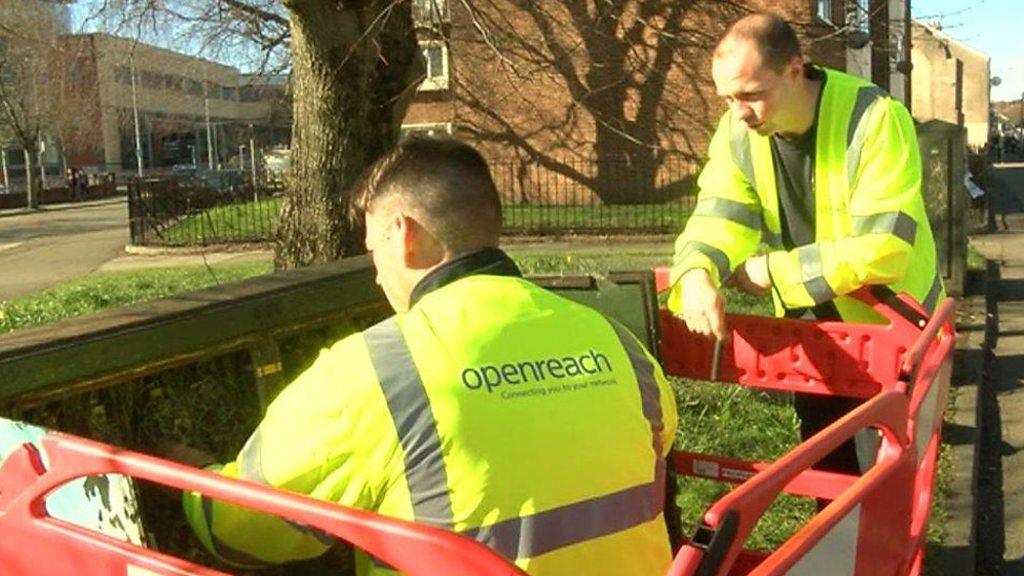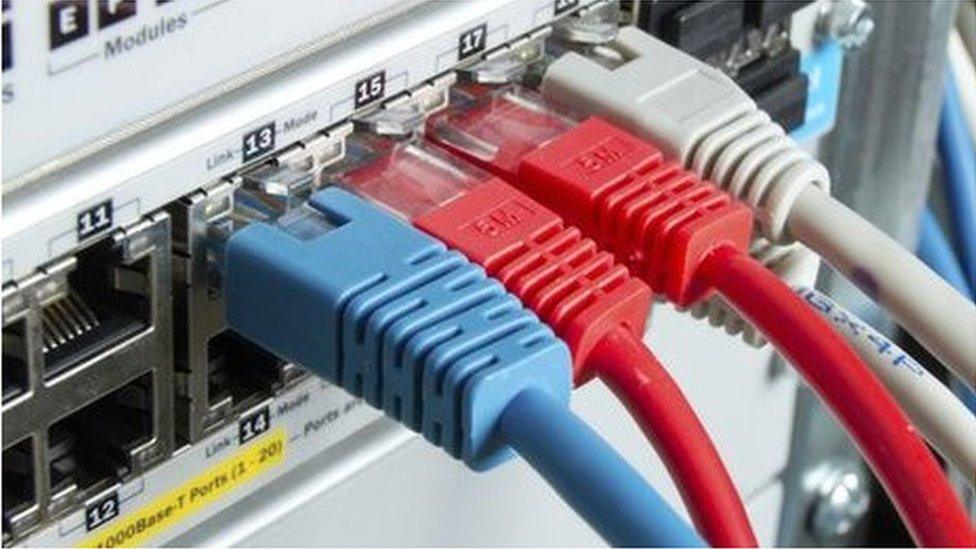Hammond to pledge superfast broadband for most homes
- Published

The Chancellor is to promise a major expansion of Britain's superfast broadband network in a bid to boost the post-Brexit economy.
In a speech at the annual CBI dinner later, Philip Hammond will pledge to make "full-fibre" connections available to most homes and businesses by 2025.
He will also set out other measures to improve Britain's productivity rates.
However, experts cast doubt on the broadband plan, saying many small and mid-sized towns would miss out.
In his speech the Chancellor will say that full fibre - which can be 40 times faster than typical high speed services - will help firms to compete after Britain leaves the European Union.
"In the 21st century, fibre networks will be the enabling infrastructure that drives economic growth," he will say.

Fast fibre networks will drive economic growth, the Chancellor will say
"Over a million premises already have direct access to them… but if we are to achieve our ambition of a truly high-speed economy, and keep up with our competitors, then we need a step change in our approach."
The government will target full-fibre connections in 15 million homes and business premises within the next seven years, Mr Hammond will say.
This would be delivered by the telecoms industry, he will say, but not via "government Diktat".
"We will do it by creating the conditions for the market to deliver… and we will use all the tools at the government's disposal to ensure all parts of the country can benefit from fibre technology," he will say.
'Towns will miss out'
Carolyn Fairbairn, CBI Director-General, said businesses would "warmly welcome" the Chancellor's commitment.
But consumer advice website Thinkbroadband told the BBC the government was unlikely to reach its goal.
The telecoms industry has already begun a number of major high speed broadband rollouts, with firms including BT, Vodafone and Virgin Media hoping to reach up to five million premises by 2020.
However, these projects have faced delays and are mainly focused on cities and some rural areas.
Thinkbroadband's editor Andrew Ferguson said there it would take a lot of work to reach the target, adding: "If other government policies such as building more affordable homes come to fruition, then 15 million will not be a majority but account for around 45% of premises."
Instead, he predicted that by 2025, the government would need a new initiative to connect UK regions that are likely to be overlooked.
"We are expecting the small and medium sized towns to be the ones that miss out in the full fibre roll-out race," he said.
In his speech, the Chancellor will also launch a review of the UK's productivity, which lags behind many of its peers in the G7 group of developed nations.
It will hear evidence from business leaders from around the country in a bid to help "more firms realise their potential".
- Published15 March 2018

- Published2 April 2018
